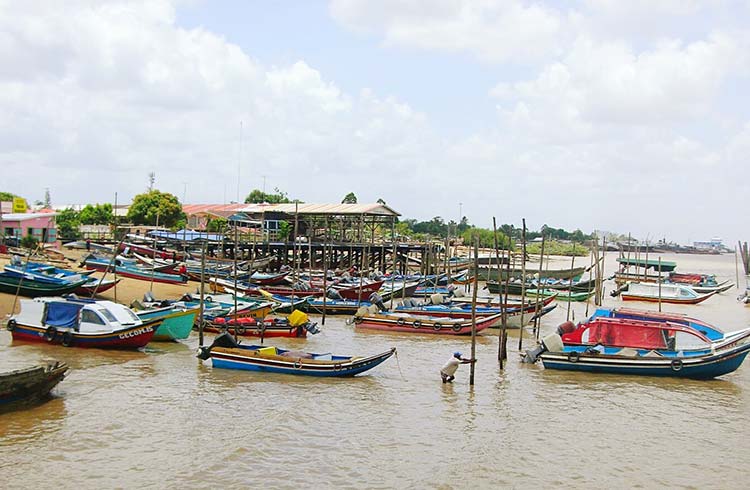How to Stay Healthy & Avoid Natural Hazards in Guyana
From flooding to insect-borne illnesses and diseases, Guyana is a beautiful country, but there are natural and health hazards to be aware of.
 Photo © Getty Images/Onerrea Velox / EyeEm
Photo © Getty Images/Onerrea Velox / EyeEm
The country of Guyana sits on the northeast coast of South America, tucked away in a corner where travelers rarely go. Guyana's tourism board refers to itself as "raw", and the untouched landscape and friendly people who live here rid the place of any negative connotations the country has suffered over the years.
Despite ongoing political instability and underlying tensions, visitors are welcomed and are rewarded with unique adventure and unforgettable experiences. The terrain is wonderfully diverse, from towering mountain ranges to desert savannahs, from grassy lowlands to lush rainforest, there's a little bit of everything in this one exotic location.
It's important to acknowledge, however, that the same elements of nature that have contributed to Guyana's beauty can also wreak tremendous havoc on the landscape and its inhabitants. Here are a few tips and suggestions to keep you healthy and safe from natural hazards while you're there.
Natural hazards in Guyana
Thankfully Guyana isn't subject to a huge amount of natural disasters, however because there are two significant rainy seasons (December to January and May through July), bringing with them heavy rainfall, the possibility of flooding is a very real threat.
In recent years, significant flooding has occurred in Georgetown, along the country's east coast, in the Mahaica-Mahaicony Abrary area and on the West Coast Demerara and Pomeroon River catchment areas. Flooding can occur quickly with little warning and cause property damage, injury and even death. Heavy rains and flooding can also mean an increase in risk of waterborne diseases.
You might want to avoid visiting during the rainy seasons as experts are predicting that future rainfall over the coming years will be heavier than normal. If you do happen to be there when there is a risk of flooding, use proper care.
Health concerns in Guyana
Given the tropical environment of Guyana, insect borne illnesses can be a problem, particularly in more rural areas. These diseases include malaria, dengue fever, Leishmaniasis and Chagas disease.
To reduce the risk of contracting one of these nasty conditions, be sure to use a quality insect repellent (preferably one containing the active ingredient DEET) and wear clothing that properly covers the skin of your arms, legs and feet.
Infectious disease is a growing concern throughout the country with those in the commercial sex, mining and logging industries considered at a higher risk. The World Health Organization recently estimated that infection rates in Guyana are among the highest in both Latin American and the Caribbean. It's a good idea to check with your doctor a few months prior to travel to determine what vaccinations and immunizations he or she recommends so that you don't place yourself at risk during your stay.
HIV and AIDS are also quite prevalent throughout the country so care should be taken if you choose to have intimate relations with someone. Be sure to use appropriate protection and avoid the use or sharing of any needles to prevent the possibility of exposure.
If it's raw, natural beauty you're after, a visit to Guyana is certain to provide you with everything you desire. From awe-inspiring waterfalls to rugged mount steppe, from vivid rainforests teeming with wildlife to peaceful sandy beaches kissed by the gentle surf, it is the chance to experience a little piece of heaven on earth. Keep in mind, however, that along with nature's beauty sometimes comes its wrath. Knowing when and where you should be cautious will help you to prepare for a safe and healthy trip.
Simple and flexible travel insurance
You can buy at home or while traveling, and claim online from anywhere in the world. With 150+ adventure activities covered and 24/7 emergency assistance.
Get a quote
No Comments